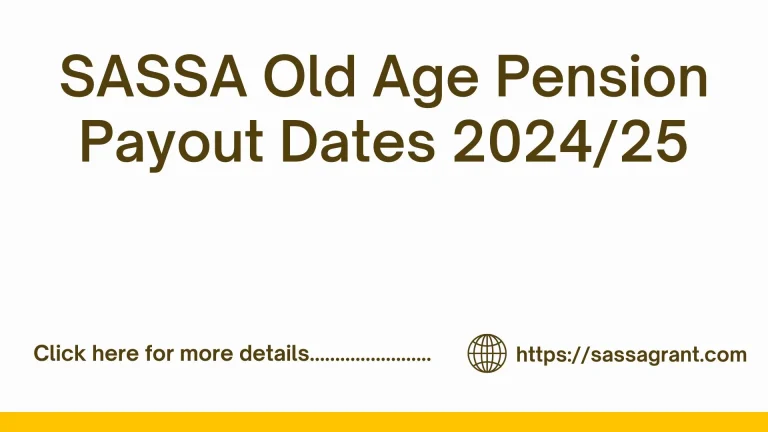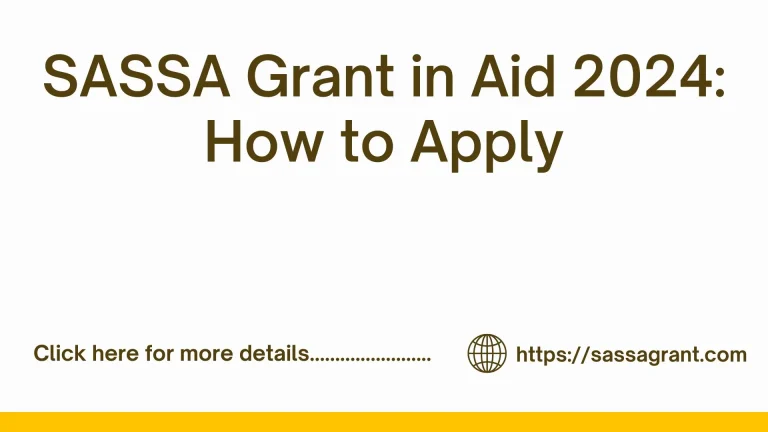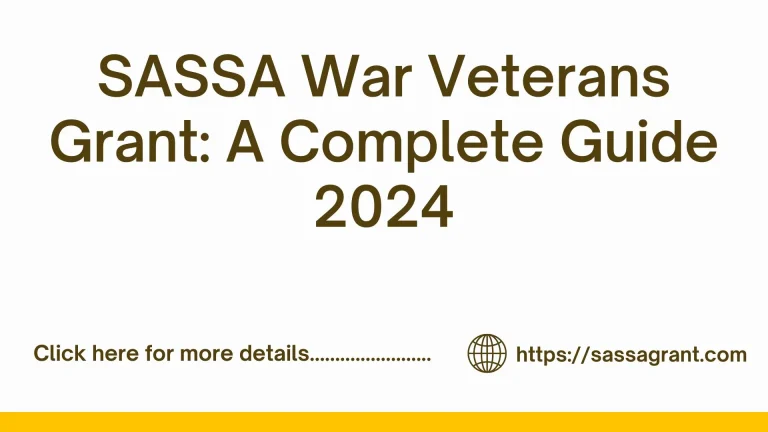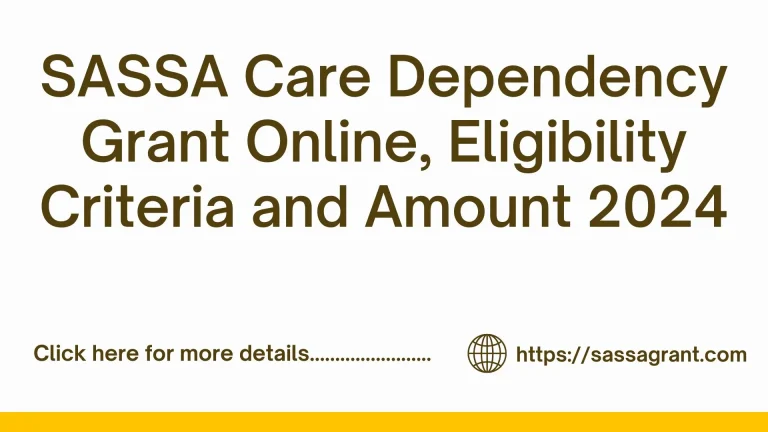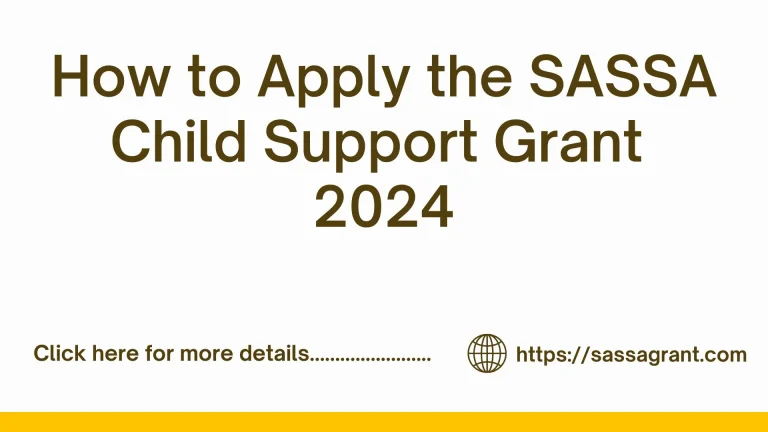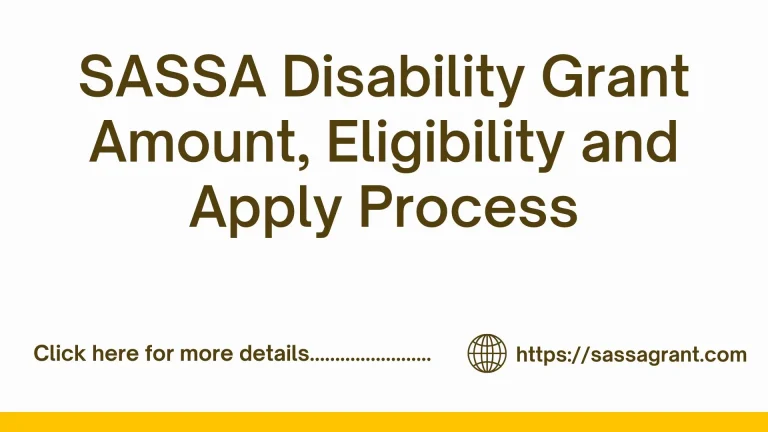SASSA Child Foster Grant – R1180 Amount
The “SASSA Child Foster Grant” is a social assistance program for those who are not biological parents but are responsible for raising a child. It is worth understanding that foster parents must have a court order to raise a child. The SASSA child foster grant will help you get the necessities like food, health, education, medicine, etc.
SASSA aims to facilitate foster parents by providing social assistance for better child nourishment. Foster children may not be living with biological parents for various reasons, such as being orphaned, neglected, or abandoned. Interested individuals or couples can get custody of such children via court and apply for a foster child grant from SASSA. You can also explore two other grants for children: the Child Support Grant and the Care Dependency Grant.
SASSA Child Foster Grant Amount
As of October 2023, The SASSA child foster grant of R1130 was distributed to the foster parents. In February 2024, the Ministry of Finance declared an increase of R50 for the year 2024/25. Now, R1180 will be paid from 1 April 2024 onward.
Payout Dates for Child Foster Grant
Let’s look at the schedule of dates and amounts for the fiscal year of 2024-25.
| Month | Date (SASSA Child Foster) | Amount |
|---|---|---|
| April 2024 | 05-04-2024 | R1180 |
| May 2024 | 07-05-2024 | R1180 |
| June 2024 | 06-06-2024 | R1180 |
| July 2024 | 04-07-2024 | R1180 |
| August 2024 | 06-08-2024 | R1180 |
| September 2024 | 05-09-2024 | R1180 |
| October 2024 | 04-10-2024 | R1180 |
| November 2024 | 07-11-2024 | R1180 |
| December 2024 | 05-12-2024 | R1180 |
| January 2025 | 07-01-2025 | R1180 |
| February 2025 | 06-02-2025 | R1180 |
| March 2025 | 06-02-2025 | R1180 |
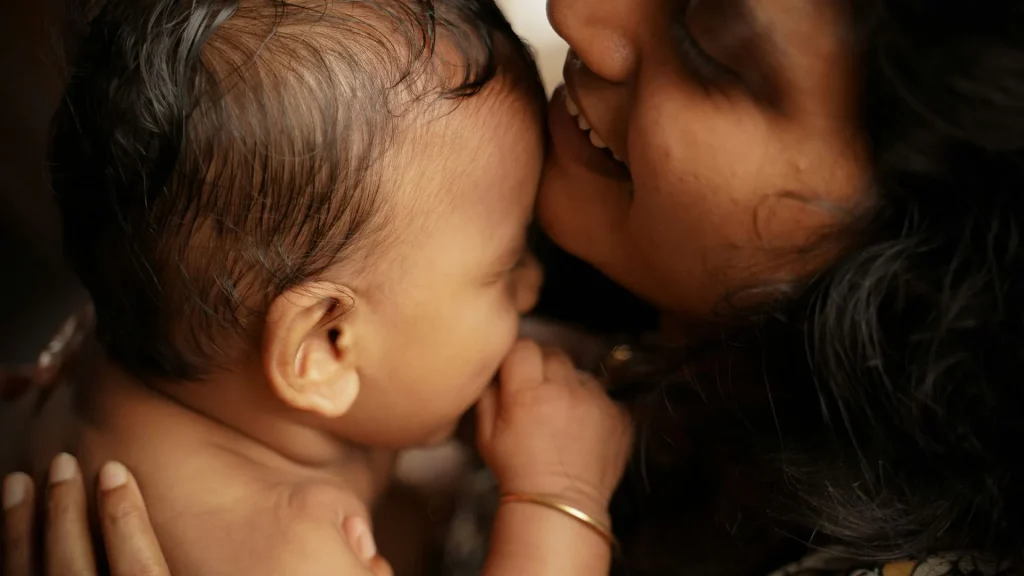
How to Apply for the SASSA Child Foster Grant
If you reside in South Africa, you can visit the closest SASSA office. Before applying, you must understand the eligibility criteria and all the required documents. Let’s examine them one by one.
Eligibility Criteria
Applicants must be:
Required Documents for SASSA Child Foster Grant
Applicants must have:
The Process to Apply for a Foster Child Grant
Hence, if you fulfill the qualifying criteria and have all the required documents, complete the application form, or a representative will fill the form on your behalf. A receipt will be given as proof to help you in future proceedings. There is no fee for applying for the SASSA child foster grant; if anyone demands a fee in the SASSA office, immediately complain against them. Remember, application forms are unavailable online; you can get them from SASSA offices.
SASSA takes strict action if they find any fake documents. So, remember, always provide original documents, and don’t try to oversmart with SASSA. As a result of counterfeit documents, you will be banned for a lifetime. Once you complete the process for the SASSA child foster grant, you will begin the verification and validation process, which usually takes 30 days. However, it may take up to 90 days in some rare cases.
If Application Approve
So, within three months, SASSA will notify you of your application’s acceptance or rejection status. If your application is approved, the outfit will start paying your SASSA child foster grant from the day the court is ordered to take custody of the child.
How will you be paid?
You can receive a SASSA child foster grant via these channels after approval.
How to appeal for the SASSA Child Foster Grant
If your application for the SASSA child foster grant is rejected, then the outfit inform you in writing with reason. Suppose you are unsatisfied and think SASSA needs to do justice to your query. You have the right to Lodge an Appeal within three months of being notified.
Reviews conduct while receiving
SASSA could conduct the review while you are receiving the SASSA child foster grant. Its primary purpose is reverting your documents, particularly the expiry of court orders. Reviews can be conducted anytime, but SASSA will notify you before three months. You need to submit a “Life Certificate” that proves you are still alive. This document must be submitted every year at the SASSA office.
Grant Suspended if:
Grant Lapse if:
Contact South African Social Security Agency (SASSA)
SASSA Toll free: 0800 60 10 11
Email: [email protected]

Conclusion
The SASSA Child Foster Grant is a social assistance program for foster parents who are not biological parents of a child. The grant covers necessities like food, health, education, and medicine. The program aims to facilitate foster parents by providing social assistance for better child nourishment. The grant has been distributed to foster parents since October 2023, with an increase of R50 for 2024/25 and R1180 per month for each beneficiary.
Before applying for the grant, applicants must be South African citizens, asylum seekers, or refugees, reside in South Africa, be legally allowed to care for a child, and be lower than 18 years of age. The required documents include:
The application process takes 30 to 90 days, and applicants can receive the grant via cash pay points in post offices, bank accounts, or designated pay points. Applicants can lodge an appeal within three months if the grant is rejected.
SASSA may conduct reviews during the grant process, requiring a “Life Certificate” to prove one’s existence. Grants can be suspended, suspended, lapsed, or terminated if the beneficiary is dead, the foster child is dead, the grant is not received consecutively for three months, or the recipient is stopped as a foster parent.
FAQs
How do you apply for an SASSA child foster grant?
Foster parents can apply at their closest office with all the required documents for the SASSA child foster grant. You can’t apply online; you must visit the office in person.
How do you check the SASSA balance for a child grant?
Dial USSD at these numbers: 12069277# or 120*3210# or call the SASSA toll-free number 0800 60 10 11 or visit the SASSA Official Website.
What is the definition of a foster child?
A child who is neglected, unsafe, abused, or biological parents is dead. So, the court places the children for care into the custody of guardians who are called foster children.
What is a Child Top-Up Grant?
A child top-up grant is an additional amount for recipients who are already receiving child support grants. Currently, in August, SASSa is paying R260 as a top-up.
Who qualifies for a foster care grant?
The applicant who has a court order to raise an orphaned, neglected, or abused child in the custody. The age of the child must be under 18.
How long does a foster care grant last?
A child’s age turns over 18, a child is dead, or foster parents are dead. You want to stop the grant independently because of better income circumstances.

